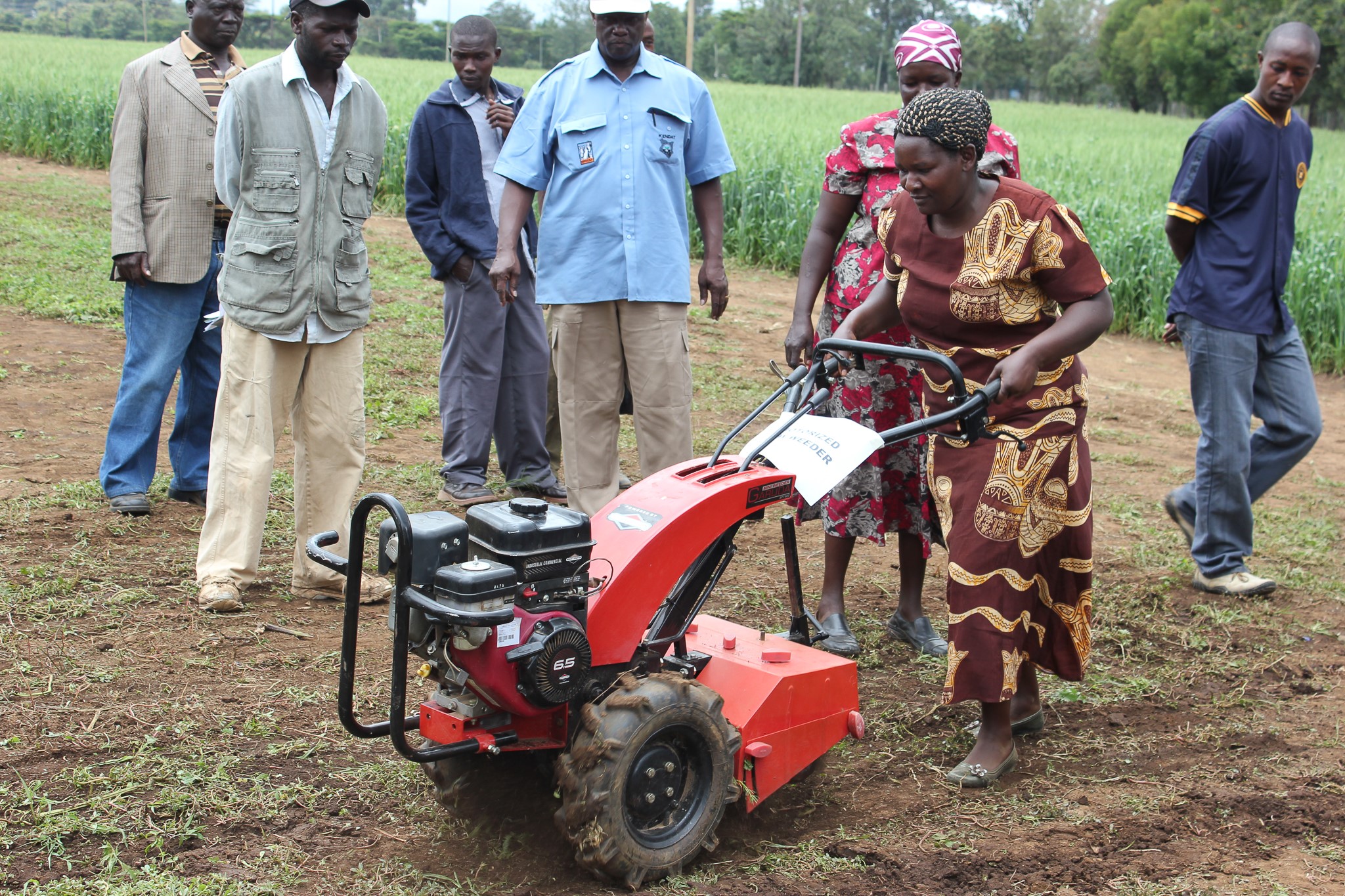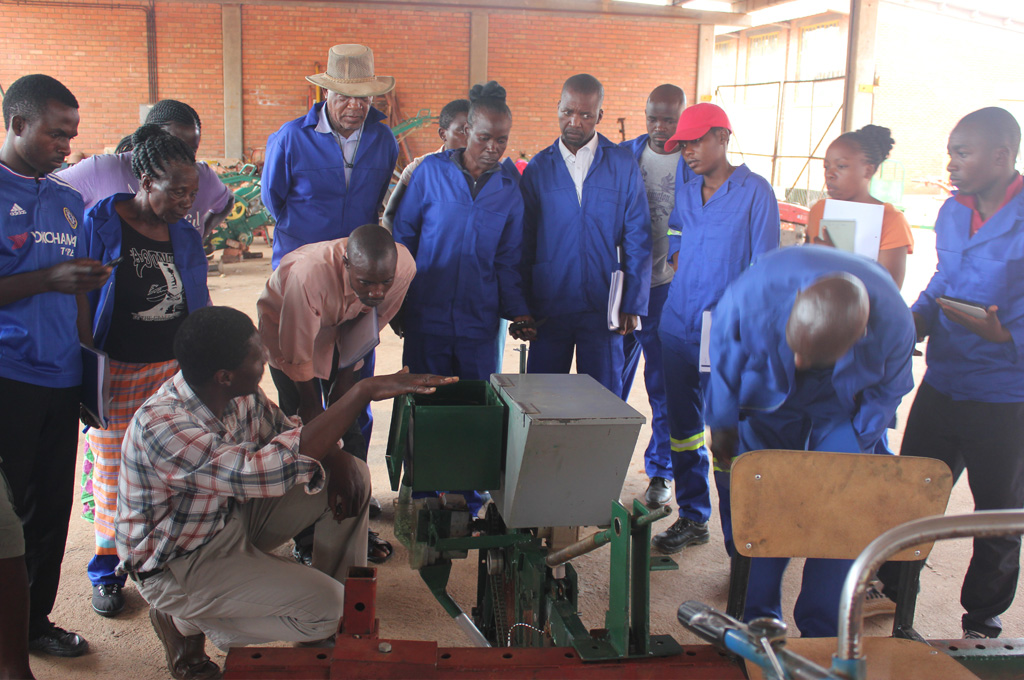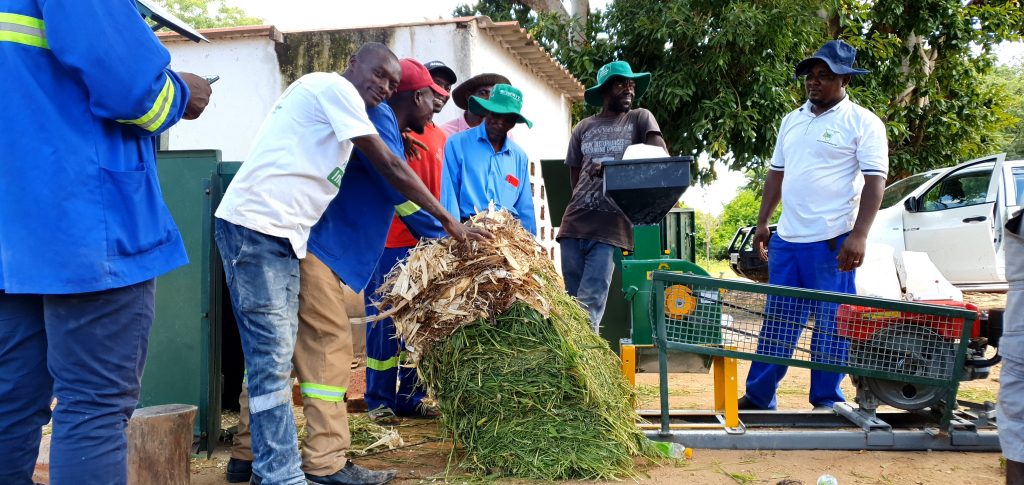
A case of the CGIAR Initiative on Agroecology in Zimbabwe
Authors: Vimbayi Chimonyo (CIMMYT – scientist, crop modeler); Frédéric Baudron (CIMMYT – cropping systems agronomist); Dorcas Matangi (CIMMYT – assistant research associate)
Food systems in marginal areas of Zimbabwe are vulnerable to climate variability and economic shocks. During the COVID-19 outbreak, governments imposed strict lockdowns that adversely affected local food systems and supply chains. Rural communities that already had difficulty feeding their families found themselves in a more desperate situation. The recurring challenges and the COVID-19 outbreak made it clear that there is a need to transform local food systems to achieve sustainable food and nutrition security. The transition is even more urgent owing to the acute labor shortages due to the accelerated trend of rural labor outmigration and an aging population in smallholder farming communities of the country. Agroecology has emerged as an approach to facilitate and champion a transformative shift to sustainable local food systems.
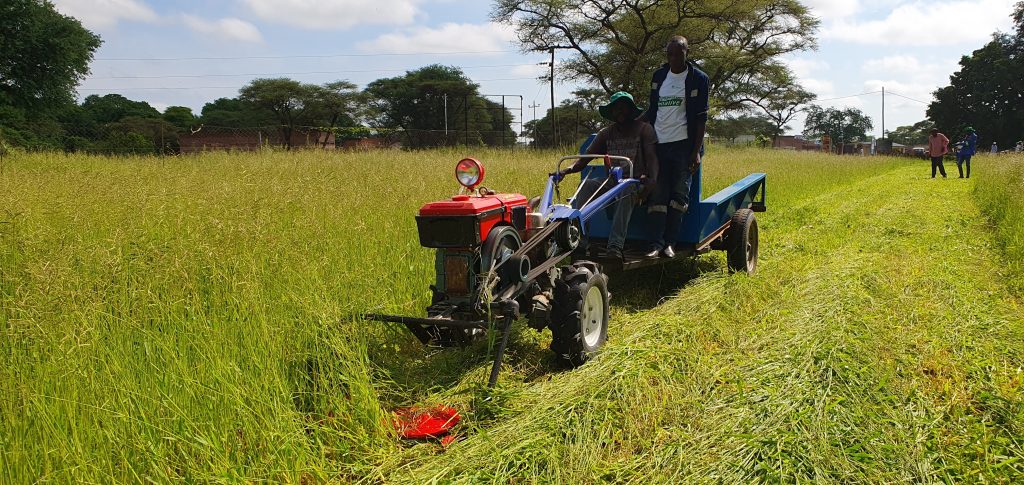
The Agroecological Initiative is at the forefront of providing science-based evidence for the transformative nature of agroecology and its potential to bring about positive changes in food, land, and water systems, including identifying institutional innovations to promote uptake. Agroecology is a holistic approach to agriculture that emphasizes integrating ecological principles and practices into farming systems. The 13 principles of agroecology guide sustainable and regenerative agricultural practices.

The initiative employs a multi-disciplinary approach, integrating ecological and social methods to co-create and manage localized food systems and monitor the 13 interconnected principles. While agroecological methods hold promise, the transition process is labor and knowledge-intensive and requires addressing power dynamics within and beyond households to address food and nutrition security. Building on the findings of the completed ACIAR-funded project Farm Mechanization and Conservation Agriculture for Sustainable Intensification (FACASI) and Harnessing Appropriate-scale Farm Mechanization in Zimbabwe (HAFIZ), CIMMYT is working in Zimbabwe with 200+ farmers and four service providers in Murehwa and Mbire districts as ambassadors of the community through Agroecological Living Landscapes (ALLs).
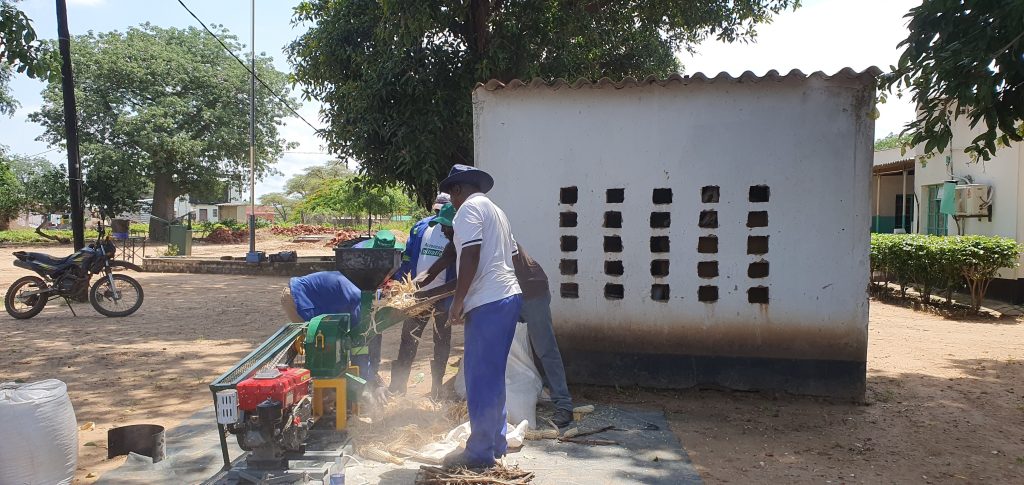
Mechanization plays a crucial role in the initiative implementation in Zimbabwe, covering a wide range of farming and processing equipment. The equipment ranges from simple and basic hand tools to more sophisticated and motorized tools. The machinery eases and reduces drudgery associated with agricultural practices, relieves labor shortages, improves productivity and timeliness of agricultural operations, optimizes resource utilization, enhances market access, and helps mitigate climate-related hazards.
“Machinery supports synergies, reduces labor, and reduces human and wildlife conflict as it reduces livestock grazing time because you can now make feed for your cattle and cutting grass reduces veld fires,” said Musandaire.
Within the Agroecology Initiative, CIMMYT considers mechanization in its technological, economic, social, environmental and cultural dimensions when contributing to the sustainable development of localized food systems and actors. In Mbire and Murehwa, a service provider model was adopted to introduce appropriate scale machinery within the respective communities. The service providers were equipped with a two-wheel tractor, ripper, mower, chopper grinder, and bailer. Training was offered on equipment operation, repair, and maintenance.
The business aspects were also discussed to broaden the participants’ knowledge of service provision. Important aspects covered include business model, entrepreneurship, record keeping, cost and profit calculations, customer care, target setting, and machinery operation planning.
To date, the service providers offer services including ripping, transportation, chopper grinding for livestock feeds and humans, and baling and mower for grass cutting at a fee.
“Mechanization has proven efficient and relevant in our district since livestock is one of our main value chains. Our service providers make hay bales for us, which we buy to feed our livestock. They also grind feed which is good for pen-fattening,” said Chimukoro, councilor in Mbire.
Preliminary findings indicate that appropriate scale mechanization enhances synergies in smallholder farming systems by facilitating more efficient and integrated agricultural practices.
“Our trailer reduces labor and saves time better than scotch carts. We used to leave much biomass in the fields because we didn’t know how to transport and process it after aggregation. But now we can recycle our biomass,” mentioned Mushaninga, local leadership in Murehwa.
By streamlining labor-intensive tasks and promoting holistic farm management, mechanization encourages complementarity among various elements of agroecosystems, contributing to more sustainable and productive smallholder farming. Target communities can pave the way for a more resilient and sustainable food system through the Agroecological Initiative.
 Capacity development
Capacity development 